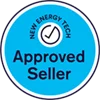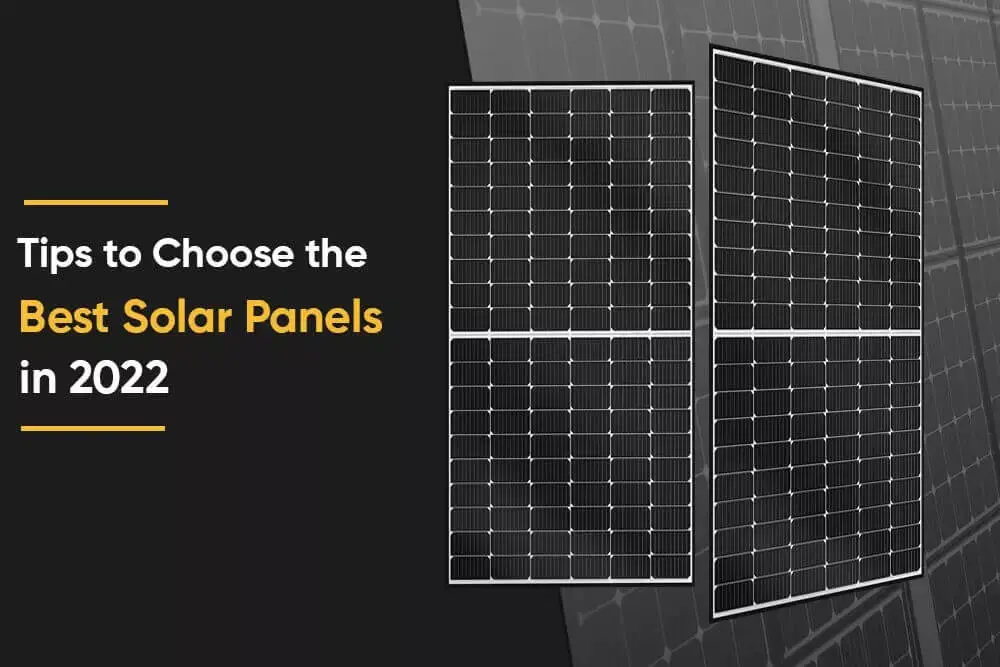In recent decades, the energy crisis has grown in prominence worldwide, propagating worldwide concern. Therefore, the need for renewable energy is constantly on the rise. The solar panel cost has also relatively come down to an affordable rate in Australia. This is the reason why people are opting for solar panels sydney.
However, apart from solar panel costs, there are other important things that one needs to take into consideration when buying a solar power system. Your purchase decision is one you’ll be living with for a very long time. Therefore, don’t base a buying decision on solar panel cost alone.
The return on your investment is what you’ll be living with, and you want to get the best return on your investment. Therefore, follow the tips given below to help make your purchase decision a success. In this article, some tips have been listed that will help an individual choose the best solar panels Sydney for them.
Know your solar panels
Before purchasing a solar power system for your household, it is important to have an idea about the materials used to make it and about its manufacturer. There are three tiers of manufacturer quality, namely Tier 1, 2, and 3.
- Tier 1 deals with the top 2% of solar photovoltaic panel manufacturers. The manufacturers of Tier 1 usually have experience of at least five years and use the best and purest grade of silicon for the production of solar cells. Some of the best solar panels with great energy production fall under this Tier.
- Tier 2 handles those companies that have less investment in the research and development of solar panels. They focus and rely on robotic assembly and manual assembly for their production line. These companies and manufacturers have been in the solar panel business for around 2 to 5 years.
They produce good solar panels at an affordable rate but can sometimes be a bit problematic. - Tier 3 basically includes 90% of the new photovoltaic solar manufacturers. These companies do not manufacture their own cells or invest in the process of research and development. They mainly focus on assembling panels. These companies utilize human production lines for the manual soldering of solar cells.
Available at a lower price, the quality differs from one another. They can cause a lot of issues in the long run.
Understand the types of solar panels
The solar panels available in the market can be divided into three basic types. These types are based on the material used and have their own features and benefits. So, therefore to choose the best solar panel, you will have to be aware of all the types.
-
Monocrystalline
These solar cells are made from monocrystalline silicon crystals and are generally black in colour. They produce the highest efficiency and are quite expensive. However, it is a one-time cost and, in the end, you will end up saving enough money on your electricity costs. So, if you have limited space on your rooftop but require a generous amount of solar energy, then monocrystalline is the best option.
-
Polycrystalline
These cells are made up of polycrystalline silicon and have become the most popular pick of Australian residents. They have lower costs since they are easy to manufacture. They have a good efficiency level; however, it is lower than monocrystalline cells.
There has been significant improvement of polycrystalline cells, and now certain cells are either better or equal to monocrystalline cells in every way. If you are looking for something affordable, then these are the ideal option.
-
Thin-film or Amorphous
These cells utilize a minimal amount of silicon since the presence of other materials are high. They have the lowest efficiency level and are quite small. But these are also lightweight and have extremely low costs.
Tolerance
For selecting the right solar panel, you will have to pay extra attention to the panel’s tolerance level. Here, tolerance refers to the tolerance of electricity or power generation. Keep in mind that if the tolerance level is small, the product of the gain of solar panel energy will be accurate.
Again, if the tolerance rating is positive, then the energy generation of the solar panel will either be equal to or higher than the given wattage under standard testing conditions. The tolerance information may not be included in the product description. Under such circumstances, simply ask the seller for the information.
Conversion efficiency
Your system’s power generation is based on the conversion efficiency of the solar panel in electrical energy. For example, if there are two solar models, and one of them has higher conversion efficiency, then the one with the high efficiency will provide better money value if the efficiency is accurate. Therefore, keep this in mind while selecting your solar panels.
PID and LID resistance
Potential induced degradation or PID occurs when stray currents get triggered by some specific climate conditions. They can result in substantial loss of power. But good solar panels either have very minimal or nil PID.
LID or Light-induced degradation occurs when the solar panels are recently installed. They occur within the first few months but stabilize after a few months. However, a significant reduction in the power of the module may occur. But again, a good solar panel either have no LID or very little LID.
Rating of temperature coefficient
The temperature coefficient rating determines the impact of heat on the operation of a solar panel. In Australia, the cost of solar power systems with a lower temperature coefficient can be a bit expensive. That is because if the rate is lower, then it is advantageous for the solar panel operation. However, a little extra cost won’t really affect it with a government rebate.
Wattage requirements
Watt peak refers to the highest production power of a solar panel on a bright and sunny day. If you have basic energy uses, then choose a solar panel with a small watt peak. However, if the requirements are more, then select solar panels that can produce a huge amount of power. By knowing the watt peak requirements, you can buy a solar panel suitable to your requirements.
Durability and warranty
Knowing the durability of a solar panel warranty is extremely crucial. Good and well-known solar panels have a warranty period of around 25 years. Keep in mind that the warranty is viable as long as the company operates, therefore choose a well-known brand that won’t disappear or shut down overnight.
Apart from the company, choosing the right solar installer is also important. Go for a reputable solar installer that works for your chosen manufacturer.
Watt capacity
Being aware of the watt capacity of a solar panel is another important factor. The watt capacity determines the energy production of your solar panels per hour. They also affect the size of the solar panels since a solar panel with a low watt capacity will be smaller than the one with a higher watt capacity.
Choose the watt capacity as per your requirements since the size is also an important factor.
Cost of solar panels
Having a clear idea about the cost of your solar panels sydney is one of the most important tips. Make sure to select a brand that meets the necessary requirements to be eligible for government rebates. Selecting a solar panel based on its price alone may not be a very wise decision, but being aware of the price is important.
Get solar panels those are CEC approved since otherwise, the cost of good solar panels can be out of your budget.
Conclusion
So, if you want to purchase solar panels in Australia but are unsure about your choices, then follow the tips given above. Check all the mentioned factors that will affect the energy production of your solar panels and choose the one that suits you the best.





